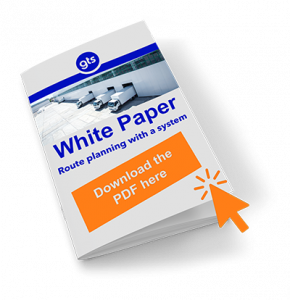If you want to optimise your delivery logistics, but Google sends you on a cycle tour through the Alps.
If you search for ‘route planning’ on Google, as a logistics professional you probably expect one thing: an efficient solution for planning delivery or service routes. What do you often get instead? Tips for hiking routes, motorhome journeys or the most beautiful cycle tours in the Allgäu. Welcome to the teakettle dilemma - one word, two meanings.
Route planning in the company: What is actually meant.
In a business context, route planning means the optimal organisation of routes for vehicles in delivery, service or field service. It deals with questions such as:
- Which route saves the most time and fuel?
- How can customer locations be combined efficiently?
- How do I take time slots, journey times, traffic volumes or vehicle types into account?
This is where route optimisation comes into play - a crucial building block for efficiency, cost control and customer satisfaction. Modern software solutions use complex algorithms and real-time data for this purpose. But before you can find these, you have to trawl through holiday blogs and GPS hiking routes.

Route planning for travellers: The second meaning.
At the same time, ‘tour planning’ stands for exactly the opposite: leisure, adventure, relaxation. Whether it's a hike, a bike tour or a motorhome trip - tours are also planned here, just based on places of interest instead of stops at customers' homes.
Google does not (yet) always recognise the difference - and this is precisely the problem for companies looking for specific logistics solutions.
Why this is more than just a funny coincidence.
This linguistic misunderstanding is not just a curious side effect of the German language - it also shows how important clear terms and good visibility on the web are. Companies that offer route optimisation solutions often have to use terms such as ‘fleet optimisation’, ‘route planning software’ or ‘logistics planning’ in their communication in order to be found in the search engine jungle.
For searchers this means: Specify your search! Examples:
- ‘Route optimisation software logistics’
- ‘Route planning for field service’
- ‘Create delivery logistics route plan’
Conclusion: Not all tours are the same.
Whether you want to deliver to customers or hike Alpine passes - good planning is worth its weight in gold in both cases. But if you're not on holiday in a motorhome but want to revolutionise your logistics, make sure you use the right vocabulary - or ask a professional straight away.




